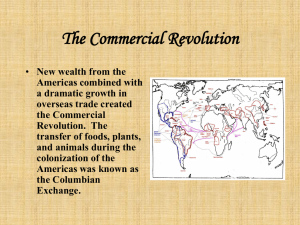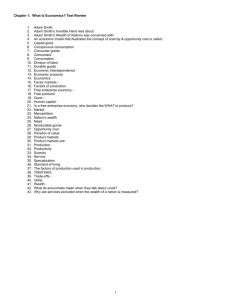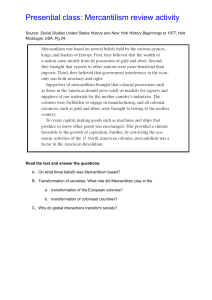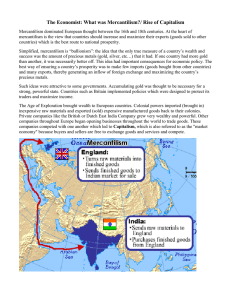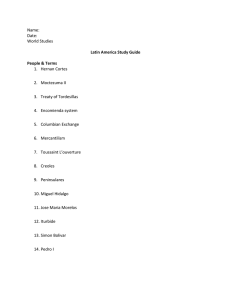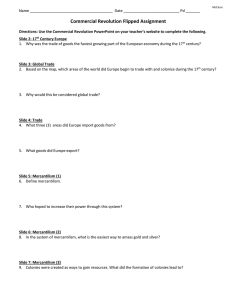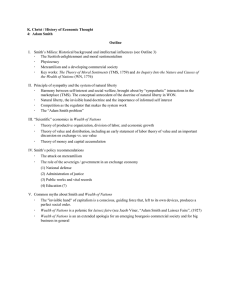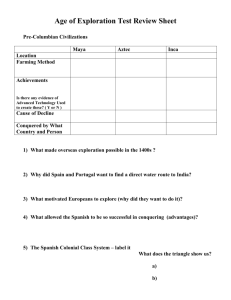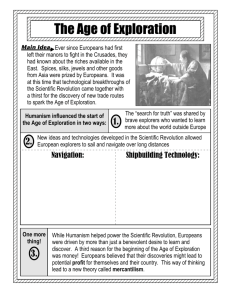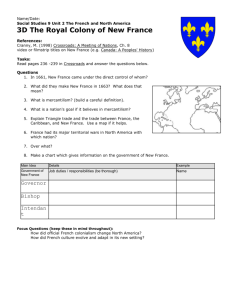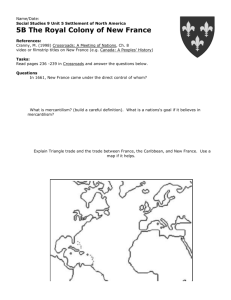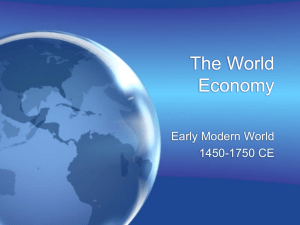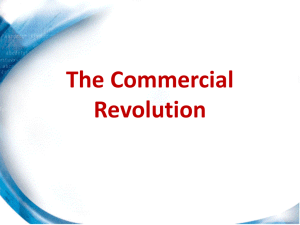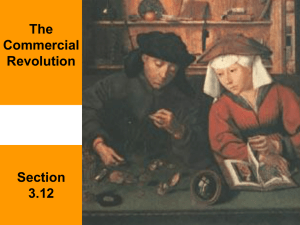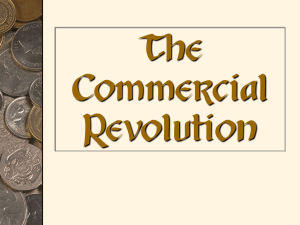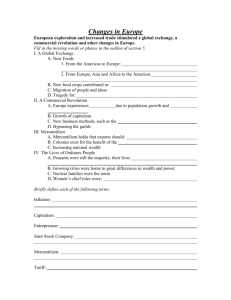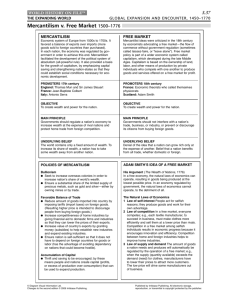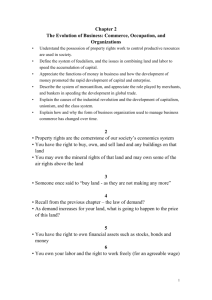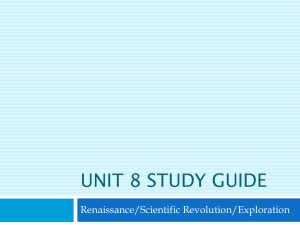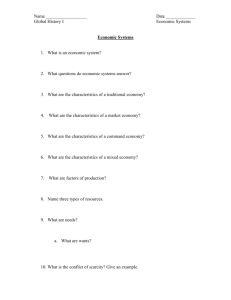European Commercial Revolution
advertisement
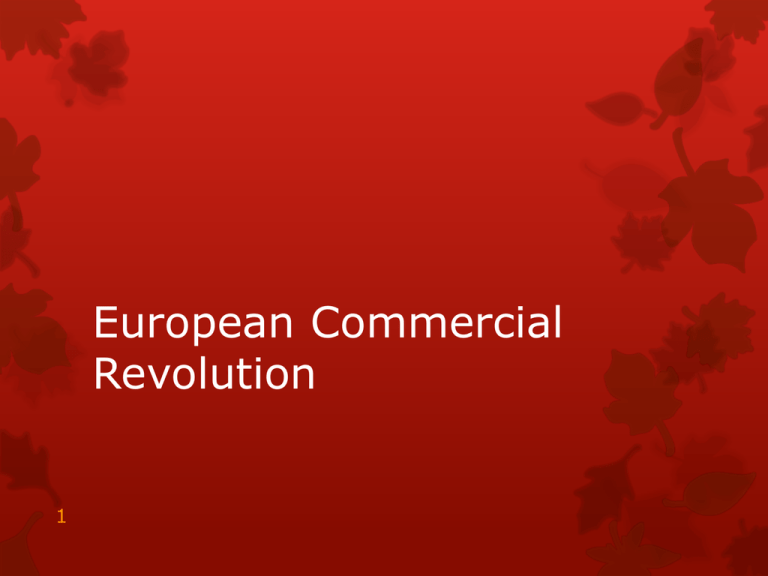
European Commercial Revolution 1 Essential Question How did Mercantilism help to create a better environment for Free Enterprise? 2 Introduction Commercial Revolution occurred as Europe entered into global trade. Mercantilism encouraged growth of manufacturing & colonies. Europe remained agricultural, but trade grew quickly. 3 Global Trade Europe produced more goods for sale Exports: America – Sugar, Rice, Tobacco, Precious Metals Ming China – Silk, Porcelain India – Tea East Indies – Spices Africa – Slaves Europe – Woolen Cloth, Lumber, Finished Goods 4 Mercantilism Def. – Increasing a nation’s wealth by limiting imports using tariffs & maximizing exports. Kings used this to increase their power Tried to remove internal trade barriers Wealth & power based on gold & silver – Used to pay soldiers Only ways to gain wealth – Trade, War 5 Mercantilism Most European countries established colonies Exported expensive finished goods to colonies in return for cheap raw materials Competition for colonial empire led to war: 1600s: England v Holland – Shipping Routes 1700s: England v France – North America & India 6 Free Enterprise Def. – An economic system in which basic economic questions are answered by free actions of producers & consumers. AKA Capitalism Business owners risked capital (money) to make profits Growth of businesses led to demand for money – Used to pay for facilities & materials 7 Free Enterprise Ships insured because of high risk of loss from accidents, bad weather, & war. Joint-Stock Companies Formed to raise money Private companies offered shares of stock in exchange for money Investors bought stock for share of profits Money used by companies to buy materials & equipment 8 Free Enterprise Banks developed ways of lending money Financial Revolution Governments issued certificates & sold to public Government paid interest to holders Governments used money to expand militaries Holland – Rich merchants establish oligarchy (rule by a few) 9 Adam Smith “Father of Economics” Wealth of Nations – Documented industrial development in Europe Didn’t invent many ideas, 1st to compile & publish them Laissez Faire – Government has no control over business 10 Adam Smith Invisible Hand Theory Invisible hand guides supply & demand Each person inadvertently helps everyone by doing what is best for themselves Ideas associated with Smith became foundation for classical economics 11 Results Europeans had more products to choose from Tea Sugar Cotton Cloth More Books Learning & Entertainment – Theater Groups, Schools Created more choices in occupations Raised overall standard of living in Europe 12 Essential Question How did Mercantilism help to create a better environment for Free Enterprise? 13

